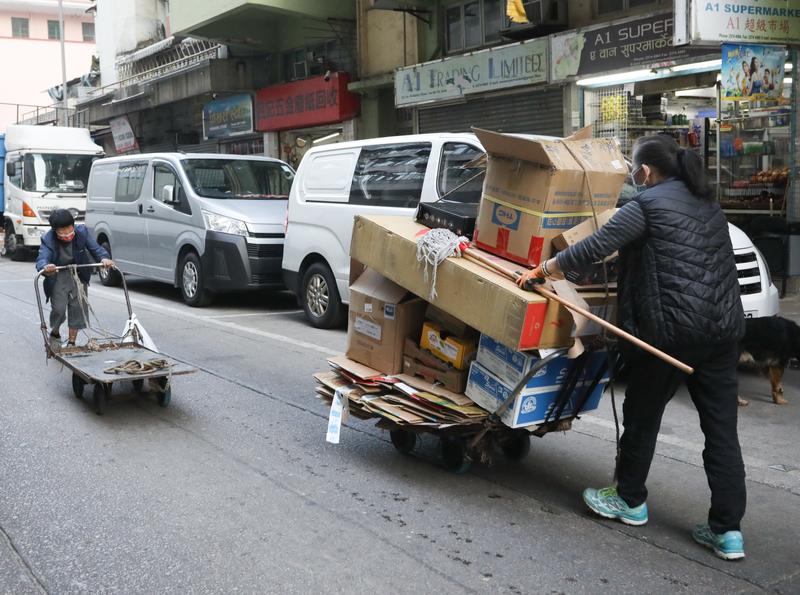Recycling to nowhere


Stanley Wong Yu-sum, senior public affairs officer of local NGO Greeners Action, agreed that a local pulping factory could be a way out. "It's our responsibility to recycle waste paper locally instead of exporting it, which would otherwise put burdens on other countries and regions," he said.
However, he said the fundamental approach to Hong Kong's waste problem is to urge people to generate less waste by, for example, imposing waste disposal charge on residents, a proposal that was put forward 15 years ago but dumped again last year.
Steuer questioned the feasibility of subjecting local households to trash disposal fees, which he thinks would harm underprivileged families. The government could instead promote a reimbursement mechanism, namely, to return cash incentives to people who classify and bring recyclables to collection sites, he suggested.
On Jan 17, a China Daily reporter took 1.6 kg of recyclables, mostly scrap paper, to a government-funded recycling store in Sai Ying Pun, western Hong Kong Island, and spent less than two minutes sorting them out following staff instructions.
The store, which opened on Nov 16 last year, is operated by local NGO 121C Society for Recycling, which is designated to run two other such facilities in Tin Hau and Tin Wan. It is among 22 such stores, as well as other 11 larger collection stations, across the city, funded by the Green@Community project.
The Sai Ying Pun store collected 1,984 kg of scrap paper in December - more than quadruple the 452 kg in the second half of November - according to the store's records.
William Lam, the NGO's worker at the site, said the store gets an average of about 180 visitors per day on weekdays, and more than 250 on weekends.
People will be given "green points" on a smart card they have applied for after dropping their recyclables at the stores, such as newspapers or glass bottles. The accumulated points can be used to redeem gifts such as food and daily necessities.
"We've been seeing an increasing number of residents who take recyclable waste to us. What's important to do now is to inform more people of our presence and encourage them to join this green life initiative through online promotional campaigns," said Lam.
Steuer said NGOs are playing their role "very well" in Hong Kong's paper recycling, particularly in raising people's awareness, although their operations have been disrupted by the COVID-19 pandemic and the social unrest in 2019.
"From my experience in China, people are more likely to accept something when it comes from NGOs in regard to recycling than when it comes from the authorities. This is a natural pattern of behavior," he said.
Despite all the hype about reviving the waning industry, the research office of the Legislative Council Secretariat concluded in a policy document in April 2019 that global recycling is still not a commercially viable business due to growing cut-throat competition in the market, as well as dwindling demand for recycled products.
In the words of a local recycler: "Instead of going forward, we may now return to where we all started from - rubbish heaps on the landfills."
Kathy Zhang contributed to this story.
- From crested ibises to pandas, China lights conservation path
- Plateau poised for world-class copper hub tag
- Xi calls for winning tough anti-graft battle
- Surging flu cases drive up demand for drug
- Nanchang funds 19 free funeral venues after tragedy
- Massive ice sculpture replicates CNS?Liaoning aircraft carrier





































